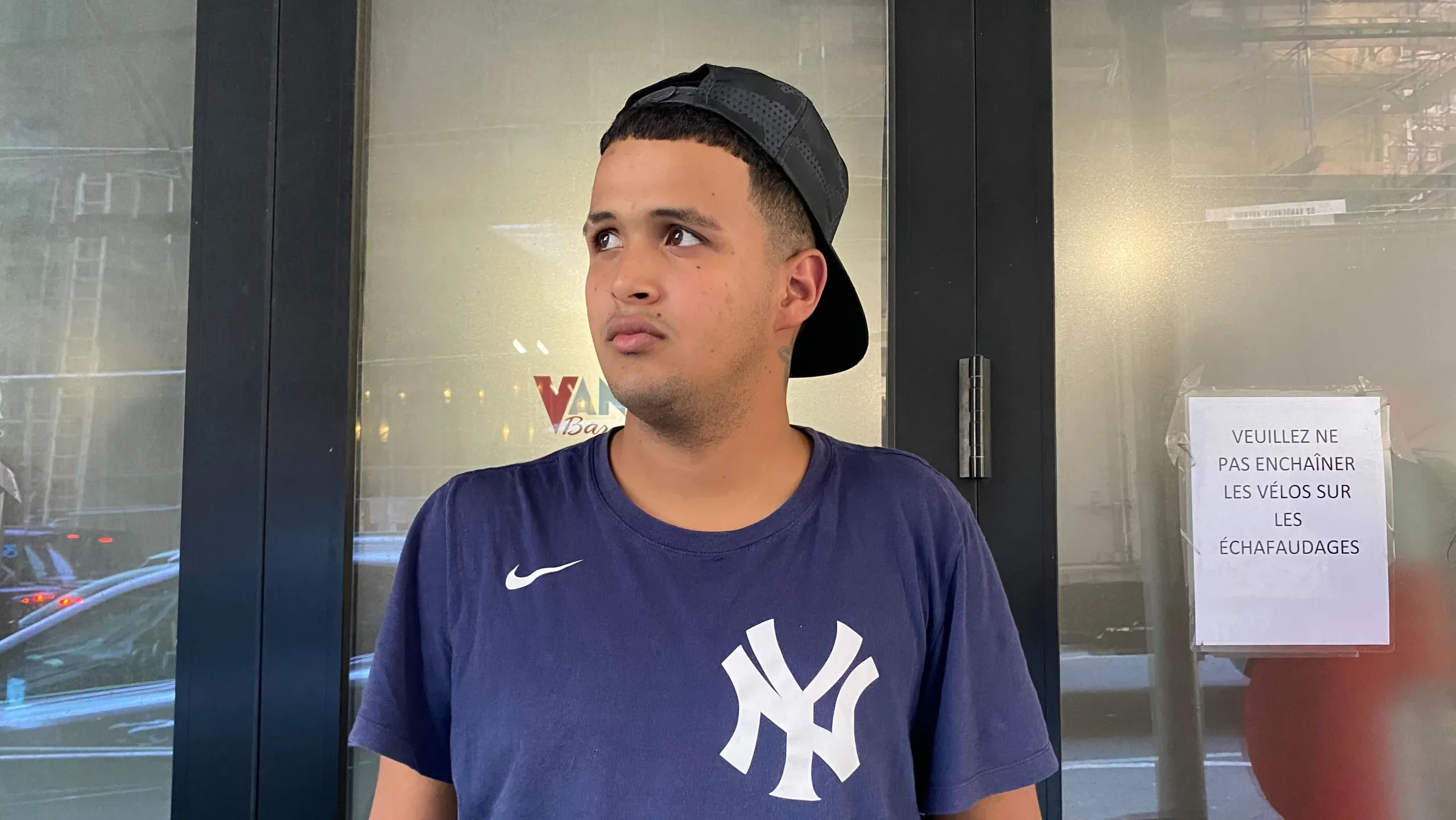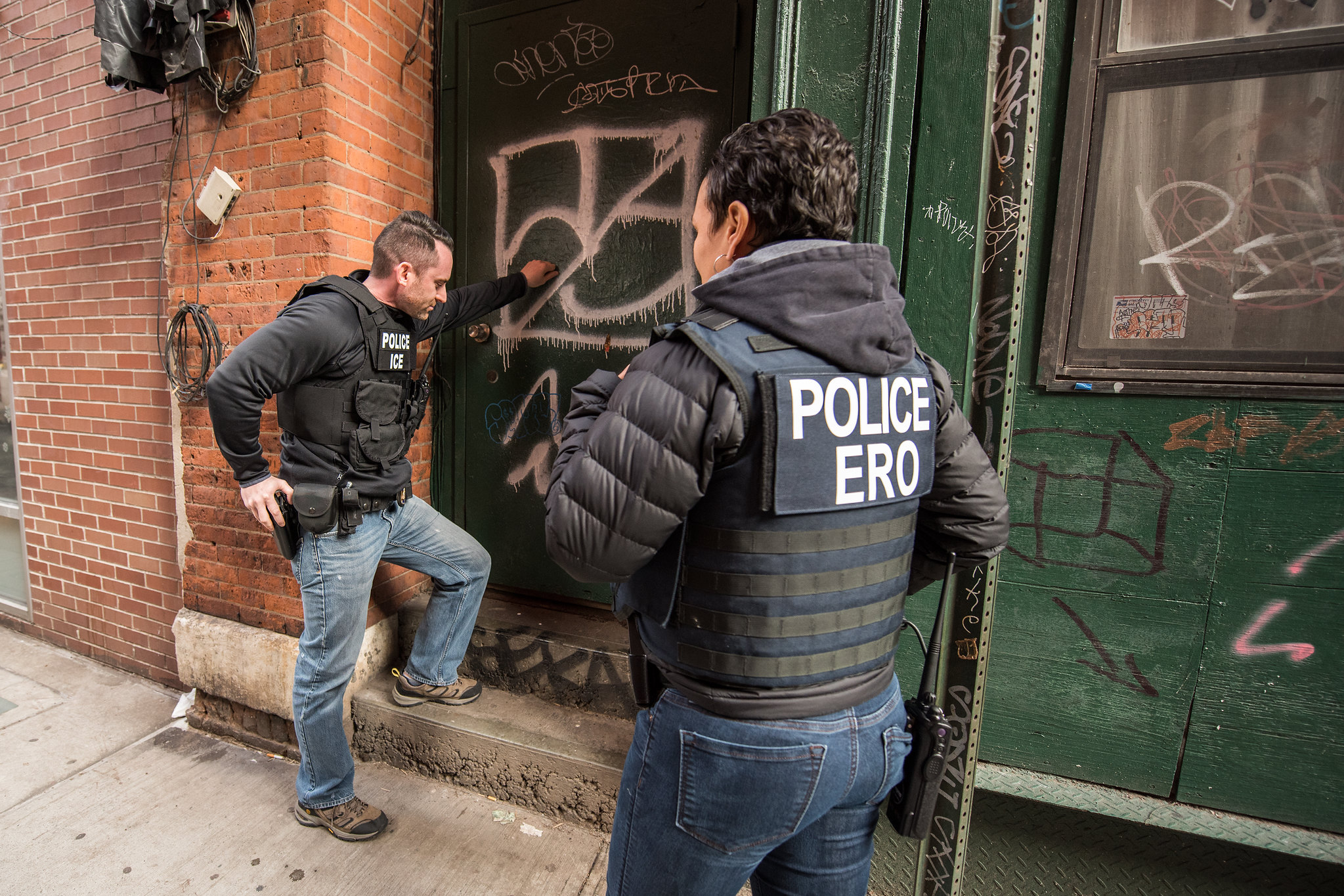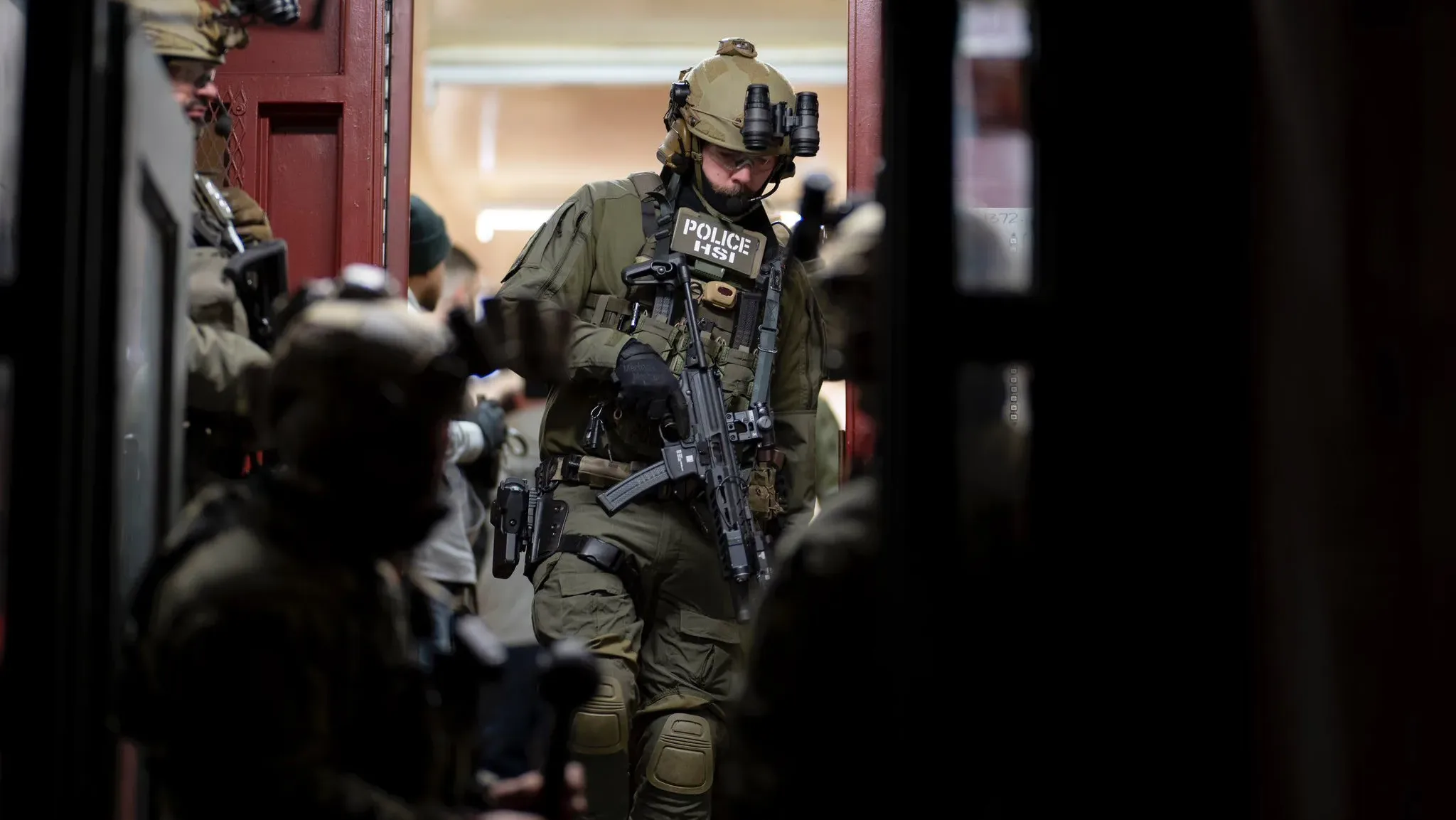For Mario Kandamil, 24, returning to his hometown in Colombia is out of question.
He, his wife and his 3-year-old son fled their country after he was threatened by guerrillas during his military service. As they traveled up north by land, he was kidnapped by a Mexican cartel in Guerrero, he said, as well as extorted by immigration officers along the way. They made it to New York with one hope: to settle, to work, and to build a better future.
But as he heard the news about Donald Trump winning the presidency, he shivered. “I got terrified,” he said, outside his shelter in midtown Manhattan. “Just to think that we’ve been through so much, and now they want to deport us… it seems unfair.”
Kandamil, like thousands of others in New York, is waiting for his asylum case to be solved, though he already has a work permit that allows him to work as a driver. He hopes his son will grow up and study in the United States. But President-elect Trump has been clear about what he hopes to achieve during his second presidency: the deportation of 11 million immigrants, including people like Kandamil and his family.
According to a recent report by the American Immigration Council, “the cost of a one-time mass deportation operation [of] an estimated total of 13.3 million immigrants without legal status is at least $315 billion,” considering costs of “arrest, detention, legal processing, and removal,” in addition to the impact on the U.S.economy because of lost labor. Doing it over the more feasible span of 10 years, “[d]eporting 1 million immigrants per year, would incur an annual cost of $88bn.”
Diego Chaves, from the Migration Policy Institute, said in an interview with Documented that “logistically, deportation is an operation that requires millions, if not billions, of dollars and does not inherently create order,” but that Trump might choose to activate deportation processes as soon as Day 1 in the White House.
“Through executive action, he might announce massive deportations for both migrants and asylum seekers, which can also begin taking place soon,” he said. “However, this might eventually be disputed in Courts, halting and delaying his plans. The narrative, however, can distill a sense of distrust in the system, and many asylum seekers might decide to return voluntarily or stay in the U.S. without any legal status.”
Alejandra Sánchez, a pseudonym requested by her because of fear of harming her status in the U.S., came from Venezuela a year ago with her two teenage children. Standing outside a Brooklyn shelter they’re living in, she too told Documented that returning to her homeland is not a possibility. “Not at least while this government is still ruling,” she said. She said she faced political persecution and her safety would be compromised if she had to go back.
However, she said, there’s no alternative but to pray. “I’m faithful that I won’t get deported,” she told Documented. “I don’t think God will fail me.”
Ten newcomers that Documented spoke with outside of New York City shelters early on Wednesday morning, shortly after the news of Trump winning the presidency, said that they would not consider leaving the U.S. for now. However, they all said they feared getting deported or having their cases rejected in courts.
But Trump’s campaign was strongly based in building the concept of “migrant crime,” a rhetoric that had its peak when he blamed Haitian immigrants for “eating the dogs” of their Ohio neighbours; and claiming that Tren de Aragua, a Venezuelan-born crime gang, had “literally taken over the town” of Aurora, Colorado. Trump said repeatedly that the United States has an “open border,” although the Biden administration has narrowed the legal crossings to 1,450 per day since last year.
Also Read: What a President Trump Win Could Mean for the US-Mexico Border
But the President-elect’s claims about reckless crossings of migrant criminals permeated even among asylum seekers, who now fear they’ll be looked at as “the bad ones,” as many of them called them, instead of getting their legitimate reasons for migrating taken into consideration. José Puebla, a pseudonym he requested due to fear of affecting his status in the U.S., from Ecuador, said that if migrants like him get deported, it’s because “of a lot of people doing bad stuff.” Christian Morales, 35, from Venezuela, said “we’re not all bad, but all of us will pay the price for the mistakes of a few.”
However, non-violent crime in the city fell by 3.1 % in September 2024 compared to the same month last year, according to the NYPD. Newcomers that Documented spoke to on Nov. 6 said they had not seen others in their situation commit crimes. However, Hispanic voters that spoke with Documented during Election Day said repeatedly that the alleged crimes and feelings of unsafety brought by the newly arrived was one of their top reasons for electing Trump.
Chaves, from the Migration Policy Institute, said that Trump’s threats could also shift asylum seeker’s perspective towards their future in the U.S.. “His narrative,” he said, “can distill a sense of distrust in the system, and many asylum seekers might decide to return voluntarily or stay in the U.S. without any legal status.”
But at least as of Nov. 6 in the morning, with the fresh news that Trump was elected for a second time in U.S. history, and voted in massively despite his aggressive stance towards several minority groups, including immigrants, none of the newcomers Documented spoke to were able to say what they think will happen next in their lives.
“I just ask God to touch Trump’s heart,” said Kandamil. “And that he changes his way of thinking.”














